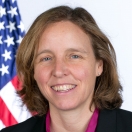
The day after his 2015 State of the Union address, President Obama traveled to Boise, Idaho, to visit with engineering and business students operating on the cutting edge of innovation, using 3D-printing technology to help launch new products and companies.
“The work you do here is one of the reasons why Boise is one of our top cities for tech startups,” the President said during a visit to Boise State University’s New Product Development Lab. The lab and its community actively foster innovation — and they do so with a culture of inclusivity. As the President remarked during his visit, “[W]hen everybody is participating and given a shot, there’s nothing we cannot do. … Because when we've got everybody on the field, that's when you win games.”
Our entrepreneurial economy is the envy of the world. But we need to do more to make sure that we are tapping America’s full entrepreneurial potential — drawing on talented Americans from all backgrounds and locations.
According to surveys, 87 percent of U.S. venture capital-backed business founders are white, 12 percent are Asian, and less than 1 percent are African American. Less than 3 percent of companies that receive venture capital funding have a woman CEO. Last year, minority-owned firms represented only 7 percent of the entrepreneurs that presented their business pitches to angel funders, and accounted for just 4 percent of the angel funding community. Only 6 percent of partners at venture capital firms are women. This is not good for our economy and it wastes talent.
Funding fuels new companies. And venture capital investments — one indicator of access to entrepreneurial opportunities — are heavily concentrated in a few coastal metro areas, like San Francisco, Silicon Valley, Boston, Los Angeles, and New York City. While there is evidence that more communities like Boise are emerging as hubs of entrepreneurial activity, access to capital can be hard to come by in too many locations – last year, for example, more venture capital was deployed in California than in all other states combined.
To maintain our lead as the best place on the planet to start and scale a great company, we must ensure that vibrant startup ecosystems emerge in every corner of America and that all Americans, including those underrepresented in entrepreneurship like women and people of color, are both encouraged and able to fully contribute their entrepreneurial talents and access resources.
That’s why we are excited to announce the first-ever White House Demo Day to take place later this summer. In the coming weeks, we will release more details on the event. Unlike a private-sector Demo Day where entrepreneurs pitch funders, this event will “demo” individuals’ and teams’ success stories — it will highlight stories from across the country that exemplify how we can “grow the pie” by including everyone in our startup economy. The day will also lift up best practices from all sectors that are aimed at making sure that all entrepreneurs get a crack at success. As Vice President Joe Biden said earlier today, we risk losing our competitive edge if we continue to neglect our full entrepreneurial potential by relying on a handful of people in a handful of places. We have to get all of our best talent off the bench and onto the field.
The White House Demo Day will build on steps the Administration is already taking to empower a diversity of entrepreneurs from around the country to launch and scale innovative companies. For example, on Monday, the President announced TechHire, a bold multi-sector effort and call to action to expand hiring practices for companies in critical need of tech workforce talent and empower Americans with the skills they need — through universities and community colleges but also non-traditional approaches like “coding bootcamps,” and high-quality online courses — that can rapidly train workers for a good-paying job, often in just a few months. And the U.S. Small Business Administration recently made 50 awards to some of America’s most promising startup accelerator programs outside the usual tech hubs — including TECenter at Boise State. The President’s Fiscal Year 2016 Budget includes a proposal to reauthorize a successful $1.5 billion state-based capital access program called the State Small Business Credit Initiative (SSBCI), with a renewed focus on promoting inclusive entrepreneurship and strengthening regional startup communities.
Why are we focused on inclusive entrepreneurship? Because the economic argument is as compelling as the moral one. U.S. Census data show that minority entrepreneurs are the fastest-growing entrepreneurial segment in the country — in the decade between 1997 and 2007, minority-owned firms grew four times faster than their non-minority-owned counterparts. Despite the existing barriers in place, women are majority owners of an estimated ten million businesses — or 36 percent of all businesses in the United States — with annual economic impact estimated at nearly $3 trillion. We can’t afford to leave entrepreneurial talent that exists in every region of the country untapped and unfunded.
Promoting inclusive entrepreneurship is an effort that has to come from every sector. Companies, foundations, universities, and other players in the entrepreneurial ecosystem are increasingly recognizing the role they can play in tapping America’s full entrepreneurial potential, and many are stepping up.
Participate in White House Demo Day
Get involved! Are you a university, a foundation, a company, an accelerator, or another key player in our nation’s entrepreneurship ecosystem? If you want to take new actions to ensure that America taps its full entrepreneurial potential, we want to hear from you. Tell us about the commitments you’re ready to announce by filling out this online form, which tracks some of the themes we plan to highlight at White House Demo Day:
- Growing Local Innovation Economies: What new steps will you take to increase the geographic diversity of startup activity and investment?
- Training Startup-Ready Students: What new steps will you take to ensure that all college and university students are exposed to the inspiration, opportunity, and experience to choose an entrepreneurial path?
- Expanding On-Ramps to Entrepreneurship: Looking across the American ecosystem of business incubators, startup accelerators, tech meetups, and other “on-ramps” to entrepreneurship, what new steps will you take to increase participation by all, including underrepresented groups?
- Connecting Diverse Talent to Capital: What new steps will you take to ensure that all entrepreneurs with investable innovations have a straight shot at securing seed and growth capital?
- Local Open Gatherings: How are you bringing these communities together locally to work on the challenges and opportunities?
Introduce Us to Dazzling Entrepreneurs
If you know an entrepreneur or founding team who exemplifies America’s role as the best place in the world to start and scale a company and who would wow the crowd at the White House Demo Day, tell us about them here. We look forward to hearing from you!



